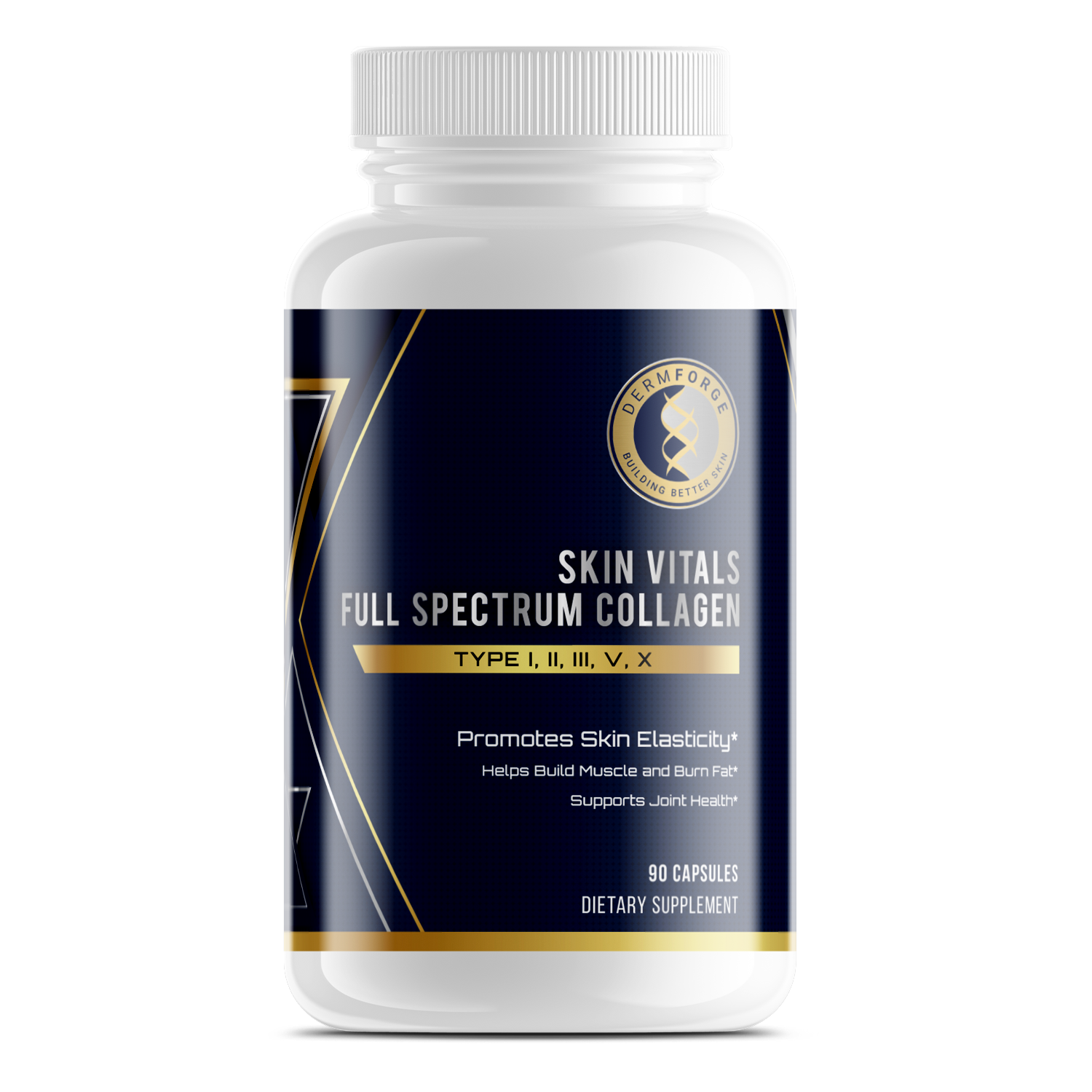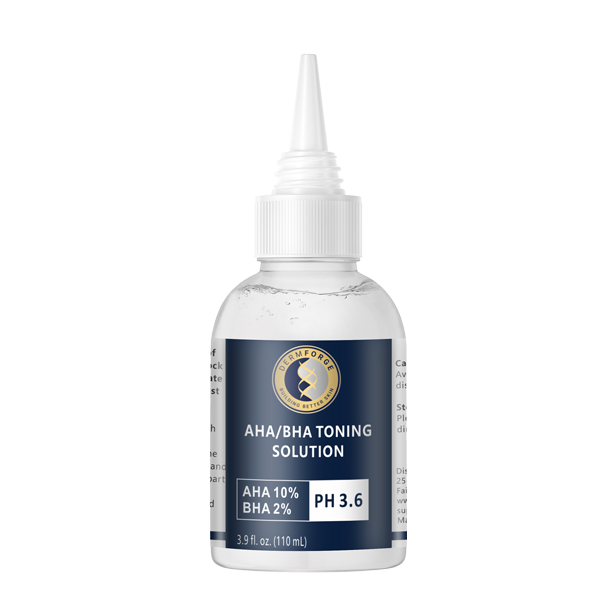Protecting your skin from the sun's harmful rays is essential for maintaining its health and appearance. Ultraviolet (UV) radiation can cause immediate effects like sunburn and long-term damage, including premature aging and an increased risk of skin cancer. Applying sunscreen daily creates a barrier that shields your skin from these harmful effects. Even on cloudy days, up to 80% of UV rays can penetrate your skin, making daily sunscreen use a vital part of your skincare routine.
Incorporating sunscreen into your daily regimen not only protects against sunburn but also helps prevent the development of skin cancers. Studies show that regular daily use of SPF 15 sunscreen can reduce your risk of developing squamous cell carcinoma by about 40% and lower your melanoma risk by 50%. By making sunscreen application a habit, you're taking a proactive step in safeguarding your skin's health.
Additionally, daily sunscreen use helps maintain your skin's protective barrier and reduces the risk of premature aging. By shielding your skin from UV radiation, you can help prevent wrinkles, sagging, and age spots. This simple daily practice not only preserves your skin's appearance but also contributes to its overall health. Remember, the importance of daily sunscreen use cannot be overstated. By incorporating it into your routine, you're investing in the long-term health and beauty of your skin.
How Sunscreen Protects Your Skin
Ultraviolet (UV) radiation from the sun poses significant risks to your skin's health. Prolonged exposure can lead to sunburn, premature aging, and an increased risk of skin cancer. UV radiation is categorized into UVA and UVB rays. UVA rays penetrate deeply, contributing to skin aging and wrinkles. UVB rays affect the skin's surface, causing sunburn. Both types can damage skin cells and DNA. Therefore, protecting your skin from these harmful effects is essential.
Sunscreen acts as a barrier against UV radiation. Chemical sunscreens absorb UV rays, converting them into heat and releasing them from the skin. Physical (mineral) sunscreens, containing ingredients like zinc oxide or titanium dioxide, reflect and scatter UV radiation. By applying sunscreen, you reduce the penetration of UV rays into your skin, thereby minimizing potential damage. This protection underscores the importance of daily sunscreen use.
Sun Protection Factor (SPF) measures a sunscreen's ability to protect against UVB rays. For instance, SPF 30 blocks approximately 97% of UVB radiation. Higher SPF values offer slightly more protection, but no sunscreen blocks 100% of UVB rays. It's important to note that SPF primarily indicates UVB protection. Therefore, choosing a broad-spectrum sunscreen ensures defense against both UVA and UVB rays. Regular application and reapplication, especially after swimming or sweating, are crucial for maintaining effective protection.
Incorporating sunscreen into your daily routine is a proactive step toward safeguarding your skin. Even on cloudy days, UV radiation can penetrate the atmosphere and affect your skin. By consistently using sunscreen, you help prevent immediate sunburn and reduce long-term risks like premature aging and skin cancer. Remember, sun damage accumulates over time, so daily protection is key to maintaining healthy skin.
Preventing Premature Aging and Sun Damage
Sun exposure significantly contributes to premature skin aging, leading to wrinkles, fine lines, and hyperpigmentation. Ultraviolet (UV) rays penetrate the skin, causing DNA damage and breaking down collagen and elastin fibers. This degradation results in reduced skin elasticity and the formation of wrinkles. Additionally, UV exposure can trigger an overproduction of melanin, leading to dark spots and uneven skin tone. Therefore, protecting your skin from the sun is essential to maintain its youthful appearance.
Consistent use of sunscreen offers long-term benefits for preserving youthful skin. By applying a broad-spectrum sunscreen daily, you shield your skin from harmful UVA and UVB rays. This protection helps prevent the breakdown of collagen and elastin, maintaining skin firmness and elasticity. Moreover, regular sunscreen use reduces the risk of developing sun-induced hyperpigmentation, keeping your skin tone even. Over time, these preventive measures can significantly slow the signs of aging, such as fine lines and age spots. Embracing the importance of daily sunscreen use is a proactive step toward long-term skin health and youthful appearance.
Incorporating sunscreen into your daily skincare routine is a simple yet effective strategy to combat premature aging. Even on cloudy days or when indoors, UV rays can affect your skin. Therefore, applying sunscreen every morning ensures continuous protection. Choose a sunscreen with at least SPF 30 and reapply every two hours when exposed to sunlight. By making sunscreen a daily habit, you invest in the long-term health and beauty of your skin.
Reducing the Risk of Skin Cancer
Ultraviolet (UV) radiation from the sun significantly increases your risk of skin cancer. Prolonged exposure damages the DNA in skin cells, leading to mutations that can cause cancer. Both UVA and UVB rays contribute to this damage, affecting the skin at different levels. Therefore, protecting your skin from UV radiation is essential to reduce cancer risk.
Applying sunscreen daily serves as a crucial defense against UV-induced skin damage. Broad-spectrum sunscreens shield your skin from both UVA and UVB rays, preventing DNA damage that can lead to cancer. By incorporating sunscreen into your daily routine, you significantly lower the risk of developing melanoma and other skin cancers. This practice underscores the importance of daily sunscreen use for long-term skin health.
Consistent sunscreen application not only prevents immediate sunburn but also reduces cumulative UV exposure over time. Even on cloudy days, UV rays can penetrate the atmosphere and harm your skin. By making sunscreen a daily habit, you protect your skin from the sun's harmful effects year-round. This proactive approach is vital in maintaining healthy skin and minimizing cancer risk.
In summary, daily use of sunscreen is a simple yet effective measure to protect your skin from UV radiation. By doing so, you reduce the likelihood of DNA damage that can lead to skin cancer. Prioritizing sunscreen application is a key step in safeguarding your skin's health and preventing cancer.
Sunscreen for All Skin Types and Tones
A common misconception suggests that individuals with darker skin tones don't need sunscreen due to higher melanin levels. However, while melanin offers some protection, it doesn't prevent UV-induced skin damage. People with dark skin can still experience sunburn, hyperpigmentation, and skin cancer. Therefore, daily sunscreen use is essential for all skin tones.
Selecting the right sunscreen for your skin type enhances both protection and comfort. For oily skin, opt for oil-free, non-comedogenic formulas to prevent clogged pores. Gel-based sunscreens can provide a matte finish, reducing shine. If you have dry skin, choose sunscreens with hydrating ingredients like hyaluronic acid or glycerin. These components help maintain moisture balance. Individuals with sensitive skin should consider mineral sunscreens containing zinc oxide or titanium dioxide. These ingredients are less likely to cause irritation. For combination skin, a balanced formula that hydrates without adding excess oil works best. Testing products can help you find the most suitable option.
Incorporating sunscreen into your daily routine is a proactive step toward maintaining healthy skin. Regardless of skin tone or type, protecting against UV radiation prevents premature aging and reduces skin cancer risk. Remember, the importance of daily sunscreen use cannot be overstated. By choosing a sunscreen that suits your skin's needs, you ensure both effective protection and comfort.
How to Properly Apply and Reapply Sunscreen
Applying sunscreen correctly is essential for effective sun protection. Begin by choosing a broad-spectrum sunscreen with an SPF of at least 30. Apply it 15 minutes before sun exposure to allow absorption. Use about one ounce (a shot glass full) to cover exposed skin. Ensure even coverage, paying attention to often-missed areas like the ears, neck, and tops of feet. Proper application underscores the importance of daily sunscreen use.
Reapplication is crucial, especially during outdoor activities. Sunscreen effectiveness diminishes over time due to factors like sweating, swimming, and towel drying. Therefore, reapply every two hours, or immediately after swimming or excessive sweating. Even on cloudy days, UV rays can penetrate the atmosphere, making regular reapplication necessary. Consistent reapplication helps maintain protection against harmful UV radiation.
For those wearing makeup, reapplying sunscreen can be challenging. Consider using powder sunscreens or setting sprays with SPF to avoid disturbing your makeup. These products offer a convenient way to maintain sun protection throughout the day. Remember, regardless of your activities, maintaining adequate sun protection is essential for skin health.
Choosing the Right Sunscreen: Key Ingredients and Formulations
Choosing the right sunscreen involves understanding the differences between chemical and mineral formulations. Chemical sunscreens absorb UV rays through active ingredients like avobenzone and oxybenzone. They often have a lighter texture, making them suitable for daily use. However, some individuals may experience skin irritation from these chemicals. On the other hand, mineral sunscreens use zinc oxide or titanium dioxide to physically block UV radiation. They are generally gentler on the skin, making them ideal for sensitive skin types. However, mineral sunscreens can leave a visible residue on the skin.
Understanding SPF ratings is crucial in selecting effective sun protection. SPF, or Sun Protection Factor, measures a sunscreen's ability to protect against UVB rays, which cause sunburn. An SPF 30 sunscreen filters out approximately 97% of UVB rays, while SPF 50 blocks about 98%. Therefore, higher SPF offers slightly more protection. Additionally, consider water-resistant options, especially if you plan to swim or sweat. Water-resistant sunscreens maintain their SPF protection for a specified time, typically 40 or 80 minutes, during water exposure. However, reapplication is essential after swimming or heavy sweating to ensure continuous protection.
Selecting the appropriate sunscreen formulation and SPF rating is vital for effective sun protection. Consider your skin type and daily activities when making a choice. Remember, the importance of daily sunscreen use cannot be overstated. By choosing the right product, you can protect your skin from harmful UV radiation and maintain its health over time.
Conclusion
Daily sunscreen use is essential for maintaining healthy skin. Protecting your skin from UV radiation helps prevent premature aging, sun damage, and skin cancer. By applying sunscreen every morning, you create a barrier against harmful rays. Additionally, reapplying throughout the day ensures continuous protection, especially during prolonged sun exposure. Regardless of skin type or tone, sunscreen plays a key role in long-term skin health.
Choosing the right sunscreen makes a difference in how well it suits your skin. Chemical and mineral sunscreens offer distinct benefits, so selecting the best option depends on personal preference and skin sensitivity. Furthermore, considering SPF ratings and water-resistant options enhances protection. Proper application and reapplication also maximize effectiveness, reducing the risks of sunburn and skin damage. These steps contribute to a well-rounded skincare routine.
The importance of daily sunscreen use cannot be overstated. Applying sunscreen consistently helps preserve your skin’s youthful appearance while minimizing health risks. Even on cloudy days, UV rays can cause long-term damage. By making sunscreen a habit, you invest in the future of your skin. Taking this simple yet effective step each day promotes healthier, more resilient skin for years to come.






